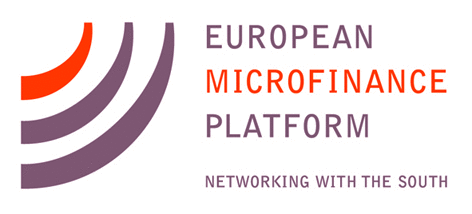On  the first day of conference sessions at European Microfinance Week (EMW), Esther Nanjovu of German development agency GIZ demonstrated a portion of a two-hour financial training program that has been shown to benefit attendees in several ways. The program is participatory, with stations addressing personal financial management, savings, investment, debt management and the usage of financial services providers. The personal financial management component is taught using a display board on which learners can place and move cards representing various expenses and income sources. As a team, approximately 25 learners work together to create a prioritized list of expenses to help them appreciate the significance of their choices. In some cases, they even argue over whether certain cards – such as sports betting – are expenses or income sources. Ms Nanjovu stressed the importance of planning savings as an explicit budget items rather than simply hoping to save any cash leftover after a family’s other expenses have been met.
the first day of conference sessions at European Microfinance Week (EMW), Esther Nanjovu of German development agency GIZ demonstrated a portion of a two-hour financial training program that has been shown to benefit attendees in several ways. The program is participatory, with stations addressing personal financial management, savings, investment, debt management and the usage of financial services providers. The personal financial management component is taught using a display board on which learners can place and move cards representing various expenses and income sources. As a team, approximately 25 learners work together to create a prioritized list of expenses to help them appreciate the significance of their choices. In some cases, they even argue over whether certain cards – such as sports betting – are expenses or income sources. Ms Nanjovu stressed the importance of planning savings as an explicit budget items rather than simply hoping to save any cash leftover after a family’s other expenses have been met.
Tim Kaiser, representing the University of Koblenz-Landau and the German Institute for Economic Research (DIW Berlin), described his survey of existing literature on financial education. While many of the results were poor, the stronger programs more commonly incorporated the following aspects: being offered at a “teachable moment” in the learner’s life, such as when she is considering borrowing money; simplified into “rules of thumb,” such as not “putting all your eggs in one basket;” personalized, such as in a counseling style; and convenient and entertaining.
Subsequently, Dr Kaiser led a randomized controlled trial with 1,300 market vendors in Uganda to test the results of two training programs, a classroom-style program and the active one that Ms Nanjovu described. After six months, the researchers found the active training program resulted in weak improvement in debt management and knowledge of financial services providers as well as more significant improvement in savings and investment. Meanwhile, from the classroom training, the researchers found weakly positive results in two of the five subject areas, but no significant change in the other three.
Regarding savings, the control group finished the six-month period with USD 480 while the active learning group finished the term with USD 582. In addition to increasing savings, this group reduced its debt level. The lecture group experienced no significant change total or net savings relative to the control group. However, many individuals within the active learning group also experienced minimal savings growth. Nearly all of the growth in savings in that group was experienced by those who began with savings above the median level of the group.
This sponsored feature is part of a series on European Microfinance Week, which is being held from November 14 through 16 in Luxembourg by the European Microfinance Platform (e-MFP), a network of over 130 financial-inclusion stakeholders. MicroCapital has been engaged to promote and document the event.
Additional Resources
Strategy for Financial Literacy in Uganda’s “Simplify Money – Magnify Life” website
http://simplifymoney.co.ug/
Harnessing Emotional Connections to Improve Financial Decisions: Evaluating the Impact of Financial Education in Mainstream Media
https://academic.oup.com/jeea/article/15/5/1025/2995881
European Microfinance Week 2018
http://www.e-mfp.eu/european-microfinance-week-2018/information
MicroCapital Coverage of European Microfinance Week 2012-2018
https://www.microcapital.org/category/european-microfinance-week/
Similar Posts:
- MICROFINANCE EVENT: European Microfinance Week; November 15-17, 2023; Luxembourg
- SPECIAL REPORT: Yikri of Burkina Faso Wins $110k European Microfinance Award for Progress Toward Food Security #EMW2023
- MICROFINANCE PAPER WRAP-UP: “Financial Inclusion That Works for Women,” by Sam Mendelson, Published by e-MFP
- MICROFINANCE EVENT: Financial Inclusion That Works for Women; March 2, 2023; London, UK
- SPECIAL REPORT: e-MFP Green Inclusive and Climate Smart Finance Action Group Focuses on Capacity Building
